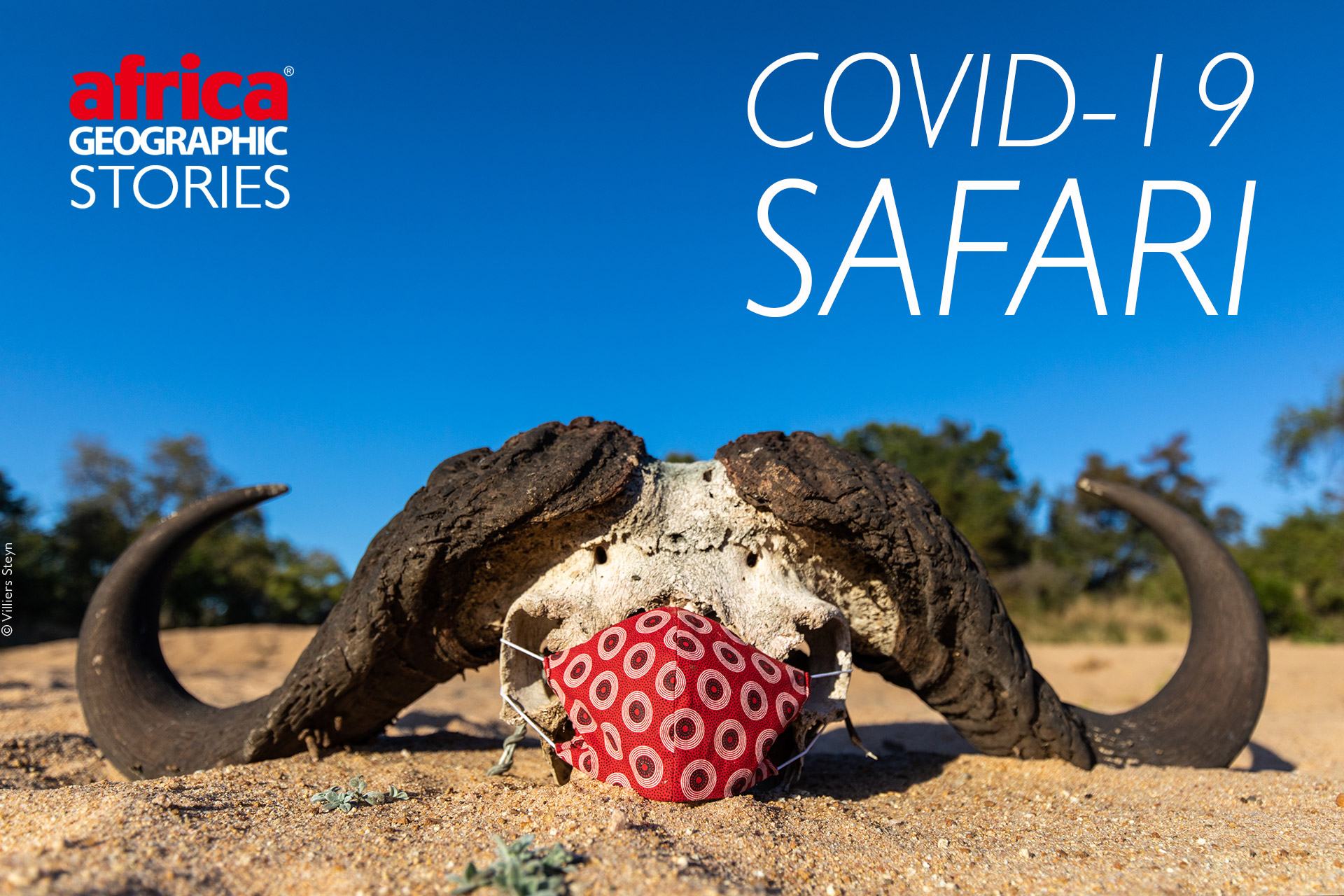
We test-drive a Covid-19 safari during south africa's lockdown

![]()
Last week I spent several days at a safari lodge in Timbavati (Greater Kruger) to test-drive a safari under South Africa’s Covid-19 lockdown regulations. I had contacted the Tanda Tula Safari Camp team a few days before and challenged them to treat my group as lab-rats to test their readiness to host guests right here, right now.
This is my subjective report-back about the experience, educated by feedback from my two travel companions – my wife Lizz, who manages team logistics at Africa Geographic, and freelance guide and photographer/videographer Villiers Steyn (aka The Safari Expert – watch his video trip report here). We all live in the bushveld town of Hoedspruit, a 20-minute drive from the Timbavati. I cannot extrapolate this experience to make a statement about the entire region’s readiness to get back to safari operations immediately. Still, I can try to give you a feel for a safari experience under this level of lockdown.
One more contextual note: In my opinion, the impact of this pandemic will be long-term as regards how we travel, and a heightened level of personal hygiene will be the new normal. Your safaris will be as epic as always – but with increased health-related requirements for us all. Again, this story covers a safari under South Africa’s temporary Covid lockdown regulations.
So here goes…
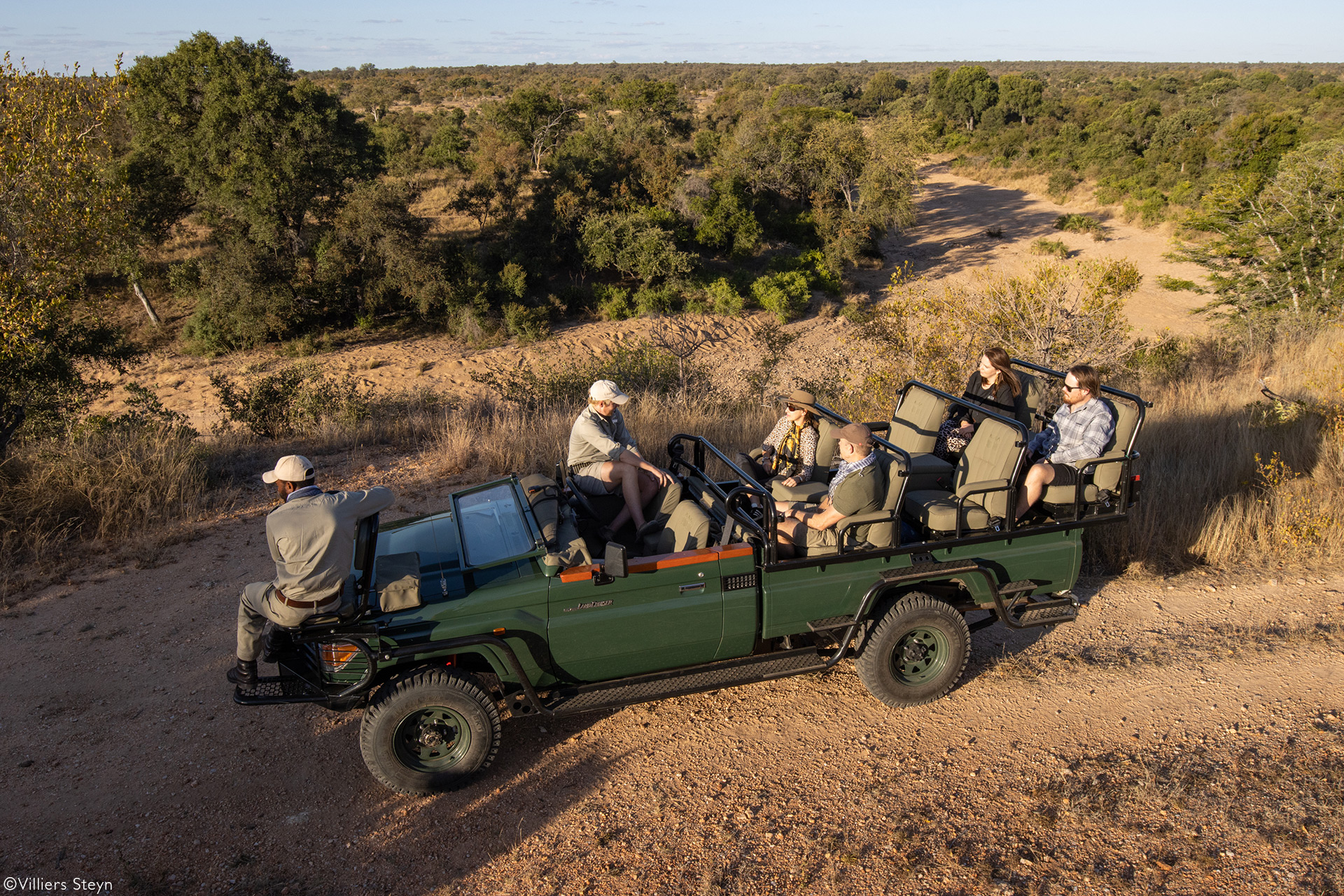
On arrival, we were greeted by our hosts as is the custom, but in this instance, they were wearing masks and brandishing hand sanitisers. This is no big drama because all retailers currently have the same compliance regulations, and we have become used to it. Our luggage was whisked off to the rooms, after being sprayed and wiped, while we received the usual briefing about camp safety (dangerous animals) and our daily program. This briefing was longer than usual and also included when and where to wear masks, sanitise our hands and exercise social distancing. We filled in a form with our medical and travel history and were given a gift pack with a mask, several alcohol wipes and a bottle of hand sanitiser. We then had our temperatures taken with an infrared thermometer, an exercise that was repeated each morning of our stay, before breakfast. With admin sorted, our safari proper began on the shaded deck with a delicious tapas lunch of lamb satays, couscous salad, cucumber wraps, venison chorizo and freshly baked sourdough bread, while a furtive banded mongoose worked the floor for unintended spillages.
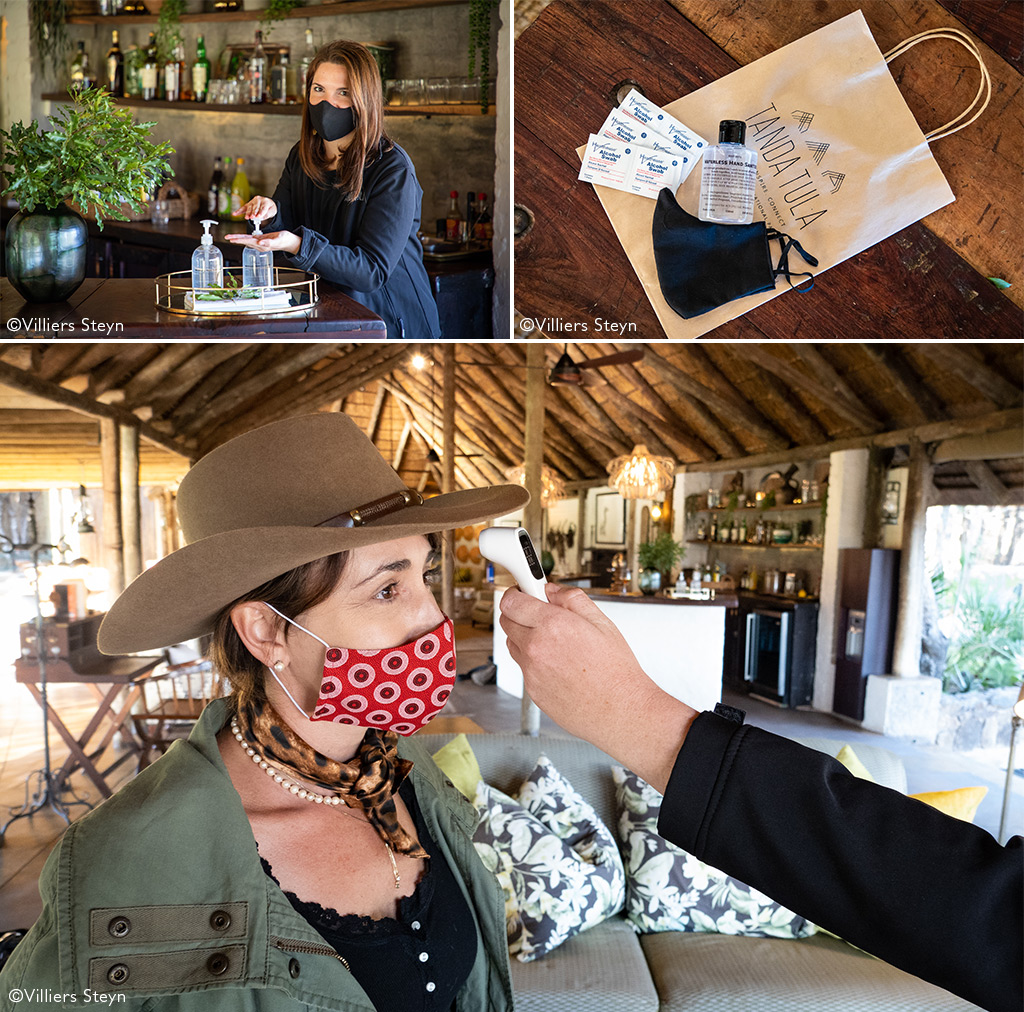
Mealtimes were not too different for us as a group travelling together. Families and groups travelling together can share a table en famille and enjoy tapas-style servings and communal table food bowls as usual, while food ordered from the menu has to be served under a protective cloche food cover.
Singles or couples travelling on their own may not share a table with strangers, which will take away from that African safari vibe where strangers become friends over a meal and a few drinks as they share their stories and photos.
The same rules apply during game drive sundowner stops, where the usual snacks of biltong and crisps are served in sealed bowls for each separate group travelling together. Another difference during mealtimes in camp was that every second chair was removed from the table to ensure social distancing. Having our temperatures taken before breakfast was no big deal – the several seconds of inconvenience seemed a small price to pay before tucking into the delicious croissants and scones, fruit salad and bacon & egg cook up washed down with locally blended coffee.
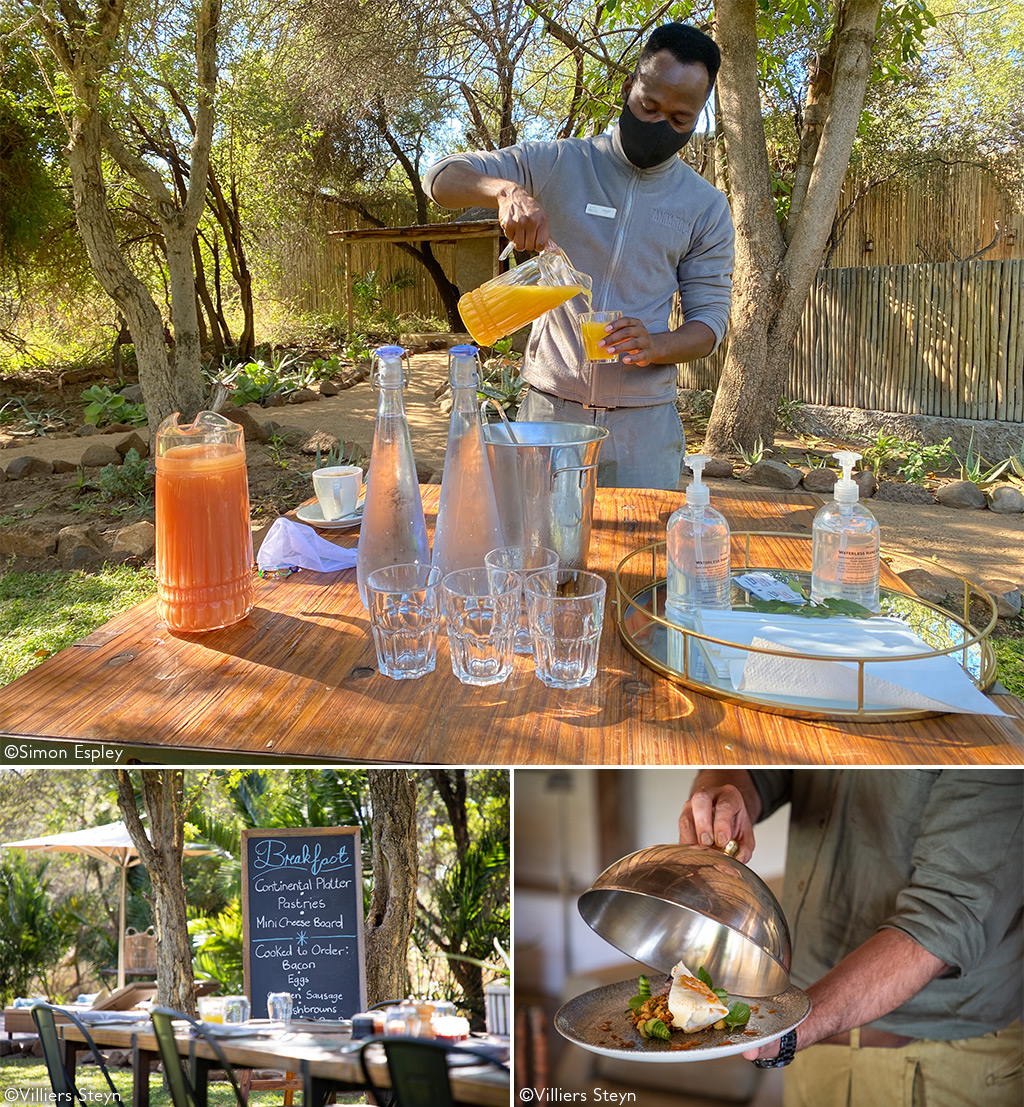
Game drives have not changed to any significant degree – none of the wildlife seemed to notice that we were on a lockdown safari. One buffalo ‘dagga boy’ paid no heed to social distancing, and we were able to photograph the detail of dry mud on his back – so close was he as he brushed past us! Game drive vehicles are mask-free zones, but there are lockdown regulations relating to seating. So Tanda Tula has reduced guests per vehicle from the usual six to four unless you are in a group travelling together. Each time you get on the vehicle, you sanitise your hands and the blankets and hot water bottles for those crisp winter mornings are allocated to you for the duration of your stay – no swapping. I also noted the game drive vehicles being given a thorough wipe-down shortly before each game drive commenced.

But aside from that, game drives are pretty much as they were. It was great to meet the 13-strong lion River Pride of Sofa Safari fame, and we spent hours watching the six cute cubs doing what kittens do. And two leopard encounters will satisfy most ardent safari-goers. Oh, and we watched four painted wolves (African wild dogs) flush and chase a herd of snorting impalas. Our guide Chad Cocking and tracker Glen Mathebula seemed to enjoy having guests onboard their vehicle again, and one radio exchange between Chad and another guide on a private drive out there somewhere demonstrated how badly we need to kickstart this safari industry again. Chad was explaining over the radio that the two lion cubs that had got separated for several days were safely back with the pride and that he and a few guests could now see all six cubs. There was a clearly audible gasp, and the return message was: “WAIT, you have guests? You’re lucky!”
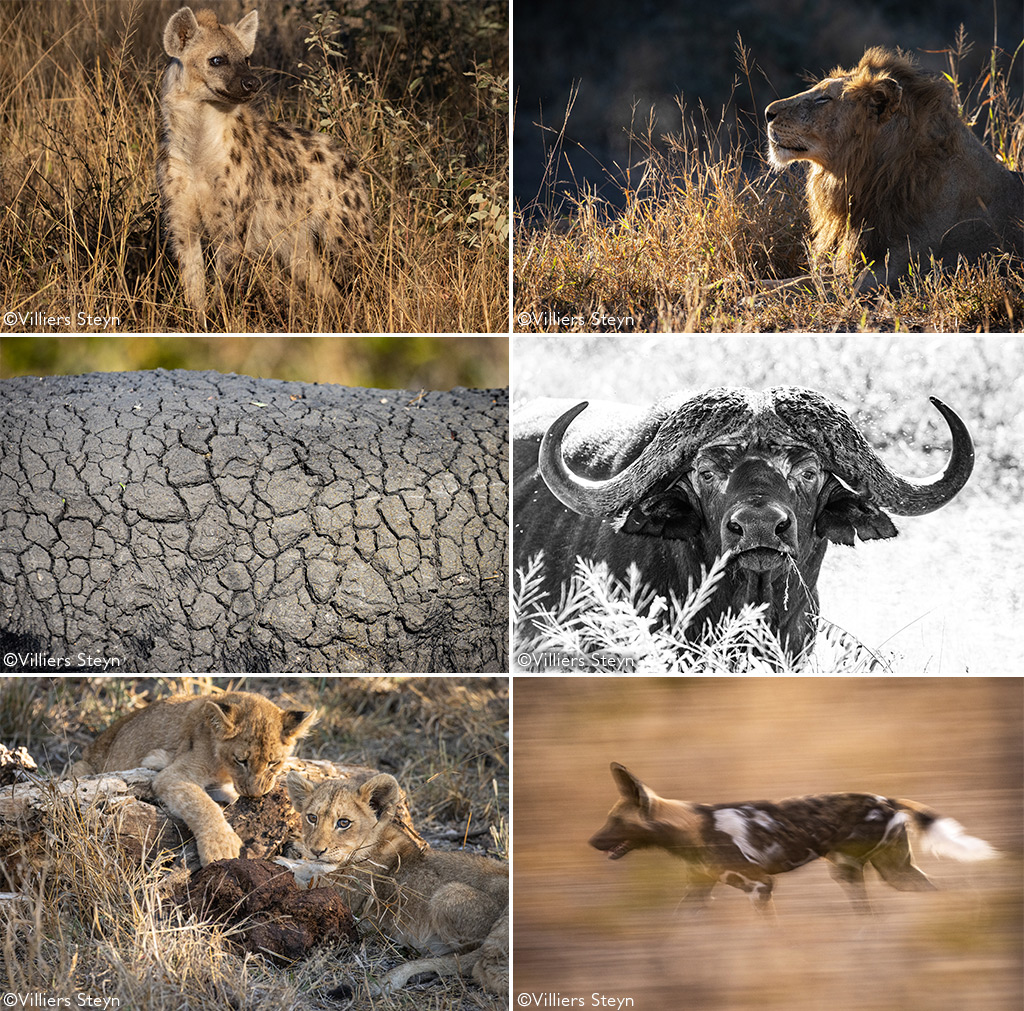
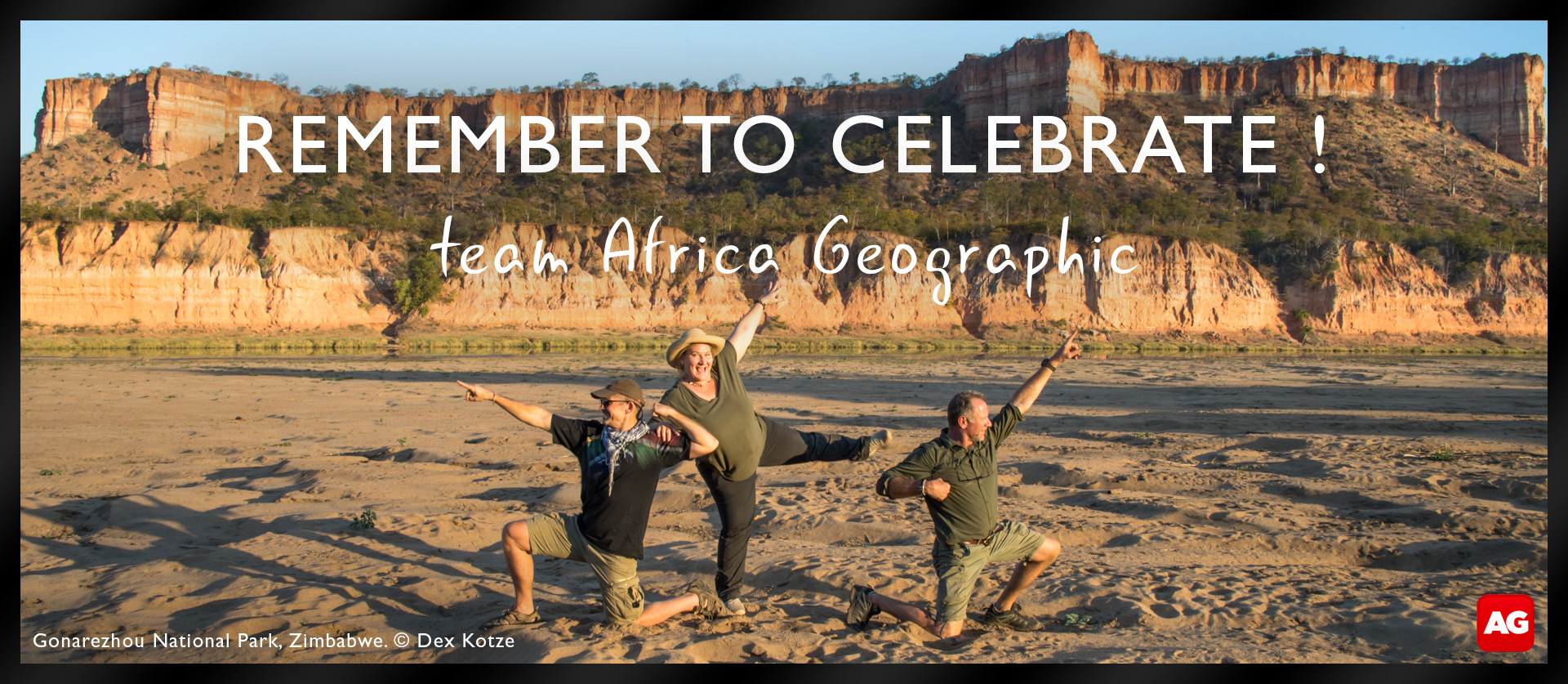
Quiet moments during safaris are important to me. I always manage to find a few contemplative moments while on safari – either lounging by the pool while others are out on game drive or kicking back on the private deck of my room. These are the times that the tranquil beauty of the bushveld washes over me, feeds my soul and recharges my batteries. Under lockdown, there are fewer poolside loungers, but that suits this anti-social moment of my safaris just fine. OK, the waiter wearing a mask as he drops off my tray of tea and freshly-baked biscuits takes a bit of getting used to – mainly because I miss seeing those smiles – but aside from that, these quiet moments have not changed.
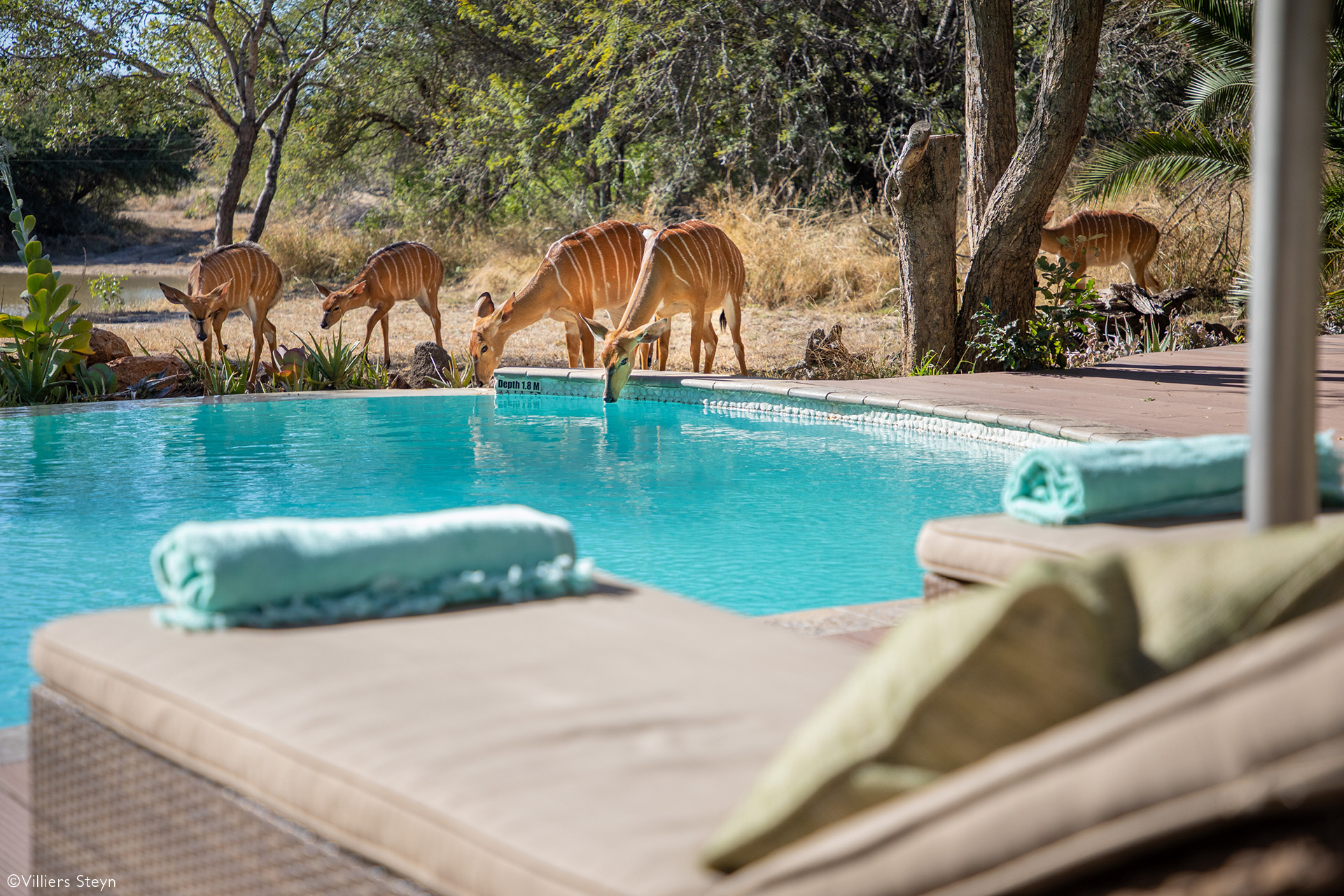
Does this emphasis on hygiene negatively impact on the safari experience?
No. Having lived through months of increased hygiene regulations as we all have, what we experienced at Tanda Tula was more of the same, albeit more organised compared to the public spaces in our hometown where higher volumes of people congregate. If this lockdown protocol were imposed out of the blue and with no context, my answer would have been different. The reality of life going forward is that an increased focus on hygiene is inevitable, and we will all adapt to what is required of us, and our perception of ‘normal’ will shift. The new normal.
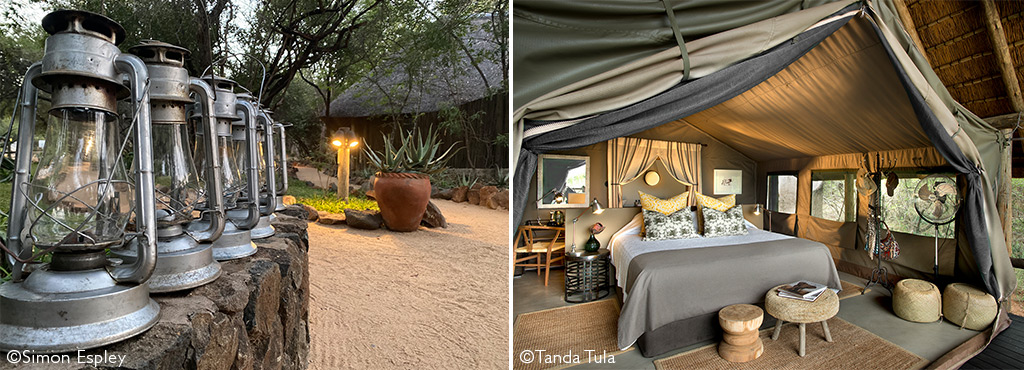
The iceberg and the duck
One thing that was immediately obvious to my group was the considerable amount of behind-the-scenes work that has gone into Tanda Tula being ready to host guests under the current lockdown regulations. It was clear to us that they have used the lockdown period to overhaul their operations completely. My brief description above is the tip of the iceberg compared to the massive amount of detail that was immediately evident.
The Tourism Business Council of South Africa (TBCSA) has issued comprehensive protocols for operating during Covid-19 levels 2 & 3 lockdown – which include the latest World Health Organisation protocols. I have studied these protocols and find them to be detailed and fair on us as guests, considering the circumstances. By far the most emphasis is on behind-the-scenes logistics – such as the preparation and handling of food & beverages and guest and camp laundry – all hidden from our experience as a guest. The safari industry has always been a bit like the proverbial duck gliding smoothly across the tranquil pond – unseen are those legs working frantically beneath the surface to craft your perfect escape from real life. Now more than ever.
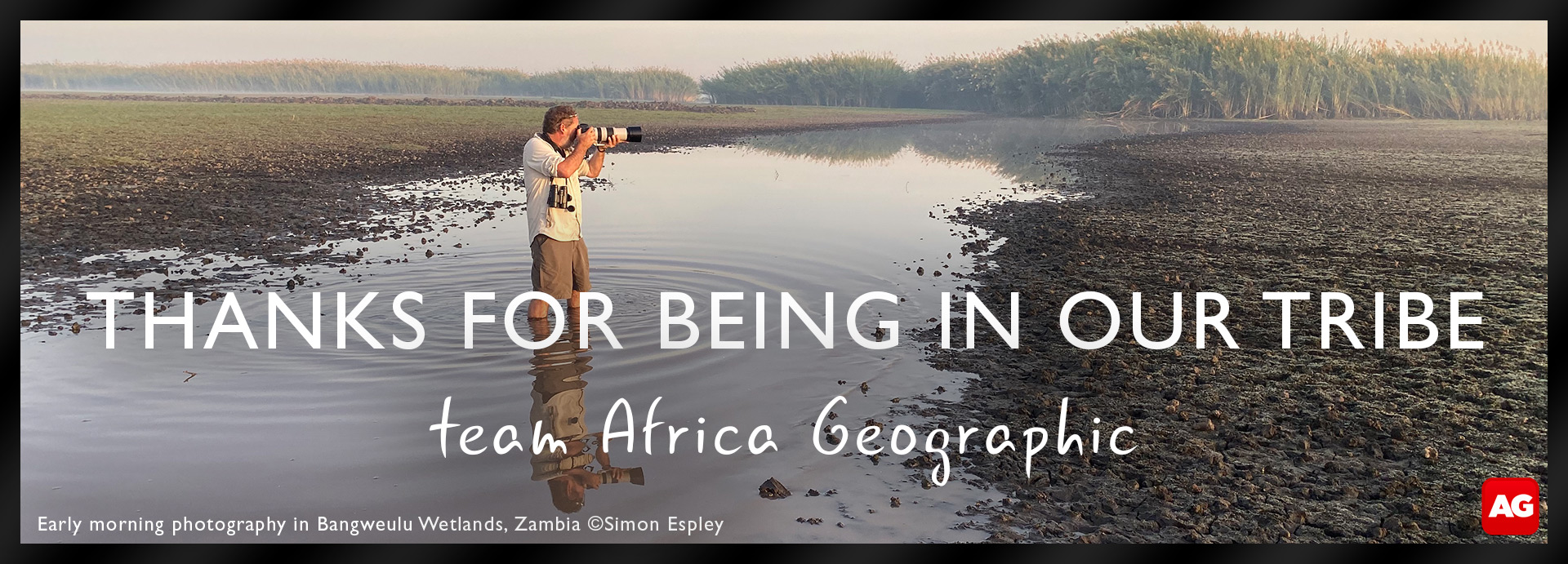
Aside from ongoing efforts to meet and exceed the requirements placed on them by the TBCSA protocols, the Tanda Tula team is using the opportunity to future-proof their operations against subsequent events and periods such as this. Better safe than sorry. One example is that they will soon publish a web app that will make all of these administrative processes far less of a hassle – be they usual or unusual. Included in the app will be a health questionnaire and safety protocols, camp layout with mask and mask-free zones, passport and booking details, your guide’s details and curios for sale online (curio shops are closed at the moment). The app promises to be a useful tool indeed – for them and their guests.
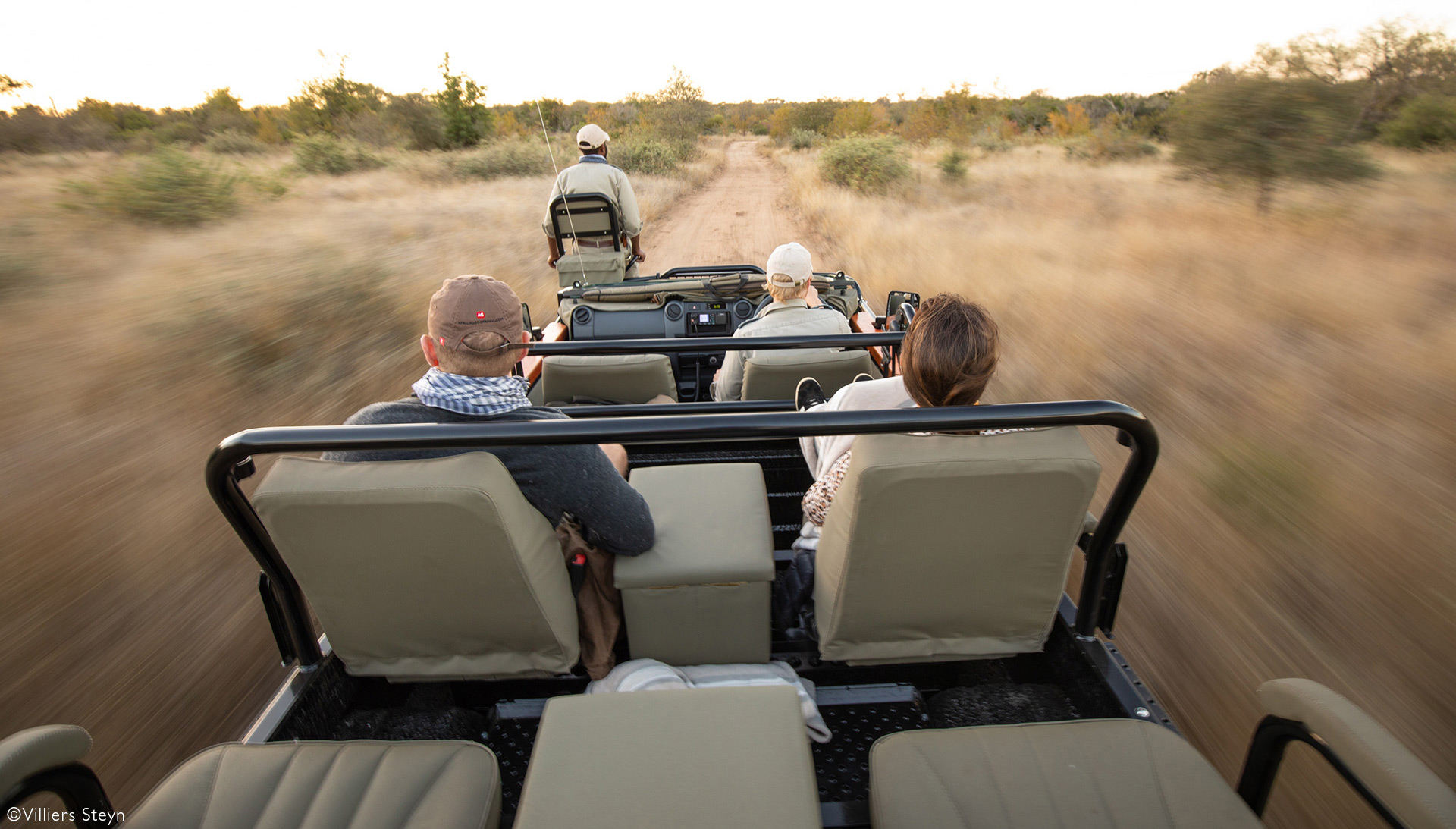
Finally
Once this current lockdown period has ended, safari life will adapt to the new normal, and your enjoyment will be what it was before. Until then, it is clear to me that camps like Tanda Tula and others that have met the TBCSA protocols can host you without increasing your risk of contracting Coronavirus.
In fact, the low human volume, open-air nature of a safari camp is precisely the sort of place we should all be hanging out right now. Be safe. ![]()
 .
.
 WATCH: Villiers Steyn, aka ‘The Safari Expert’ made this video about our Covid-19 safari.
WATCH: Villiers Steyn, aka ‘The Safari Expert’ made this video about our Covid-19 safari.
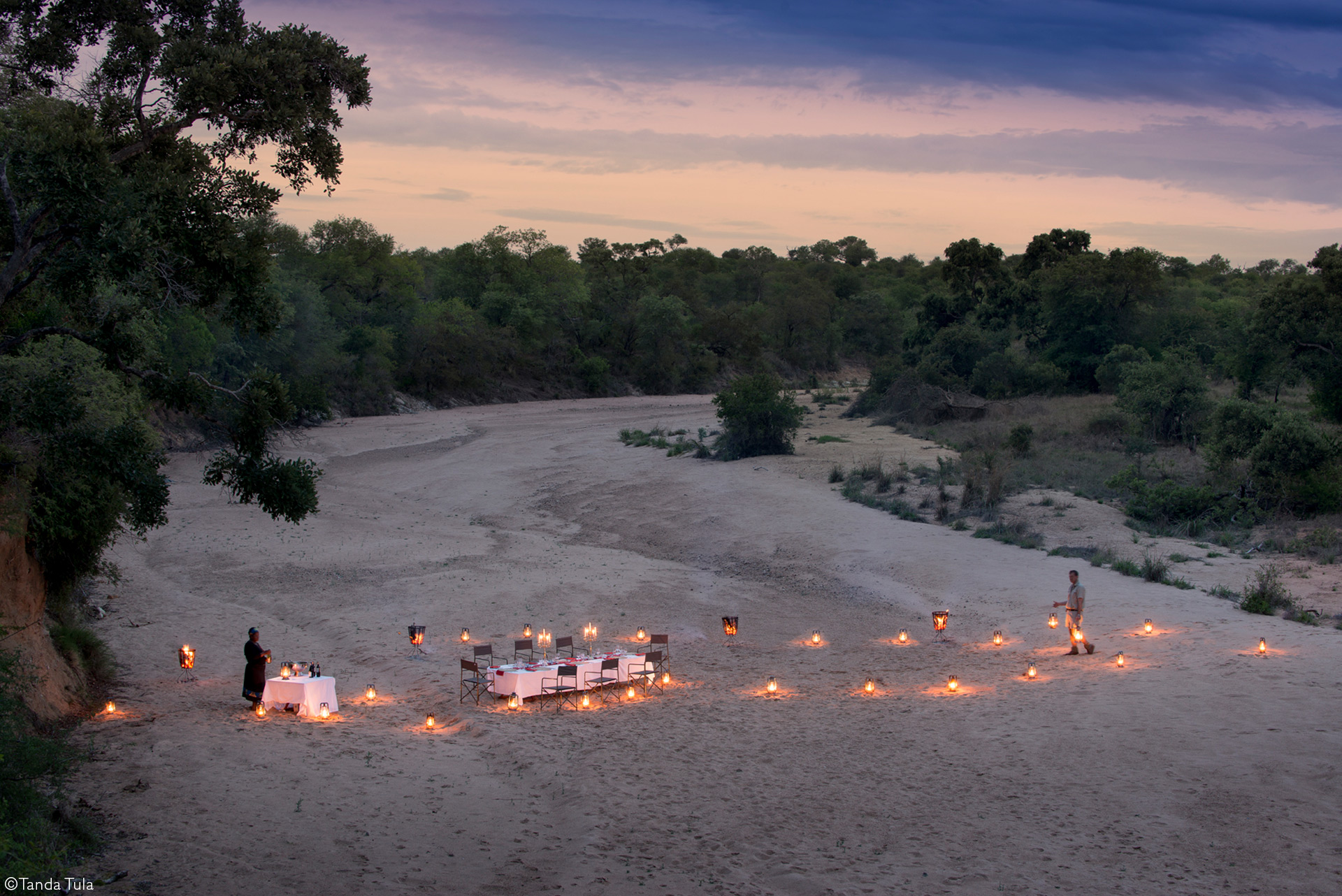
ABOUT THE AUTHOR, SIMON ESPLEY
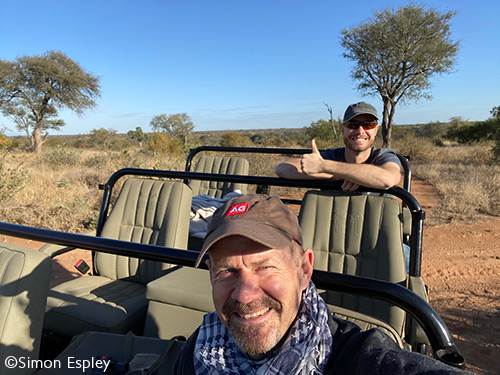 Simon Espley is an African of the digital tribe, a chartered accountant and CEO of Africa Geographic. His travels in Africa are in search of wilderness, real people with interesting stories and elusive birds. He lives in Hoedspruit with his wife Lizz and two Jack Russells, and when not travelling or working, he will be on his mountain bike somewhere out there. His motto is ‘Live for now, have fun, be good, tread lightly and respect others. And embrace change.’ Picture: Simon Espley (front) and Villiers Steyn (back) on assignment in Timbavati
Simon Espley is an African of the digital tribe, a chartered accountant and CEO of Africa Geographic. His travels in Africa are in search of wilderness, real people with interesting stories and elusive birds. He lives in Hoedspruit with his wife Lizz and two Jack Russells, and when not travelling or working, he will be on his mountain bike somewhere out there. His motto is ‘Live for now, have fun, be good, tread lightly and respect others. And embrace change.’ Picture: Simon Espley (front) and Villiers Steyn (back) on assignment in Timbavati
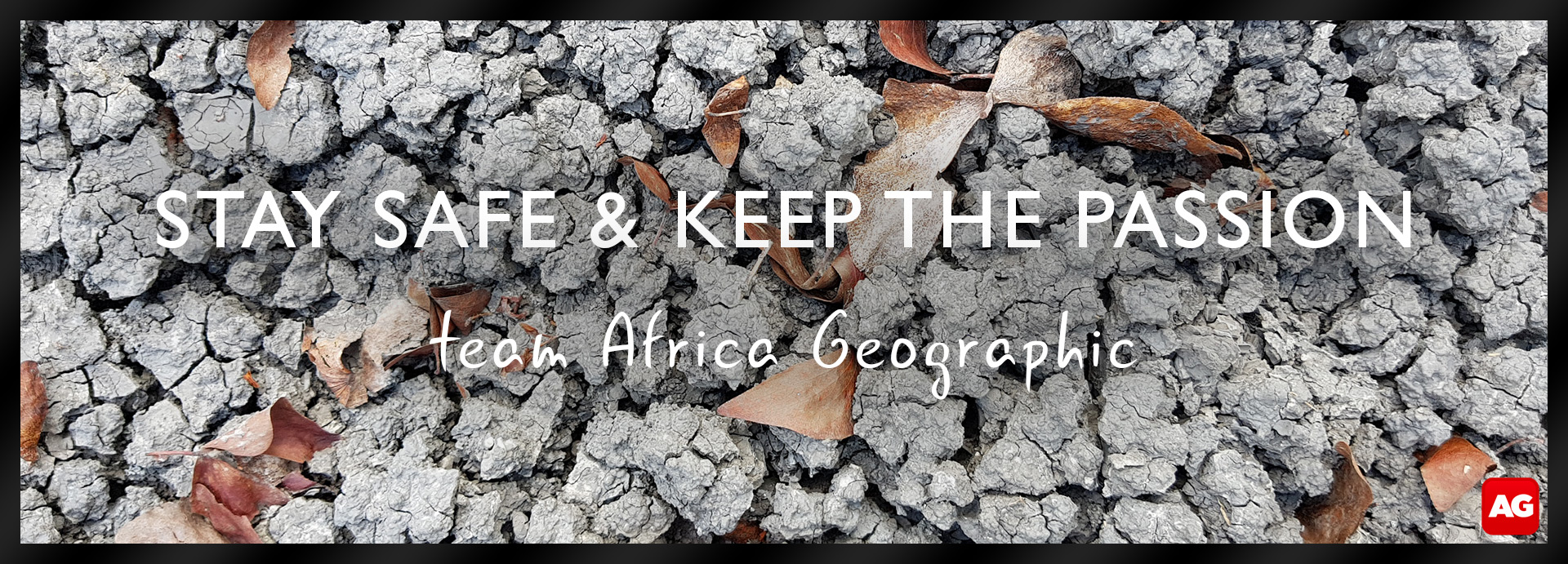
To comment on this story: Login (or sign up) to our app here - it's a troll-free safe place 🙂.![]()




